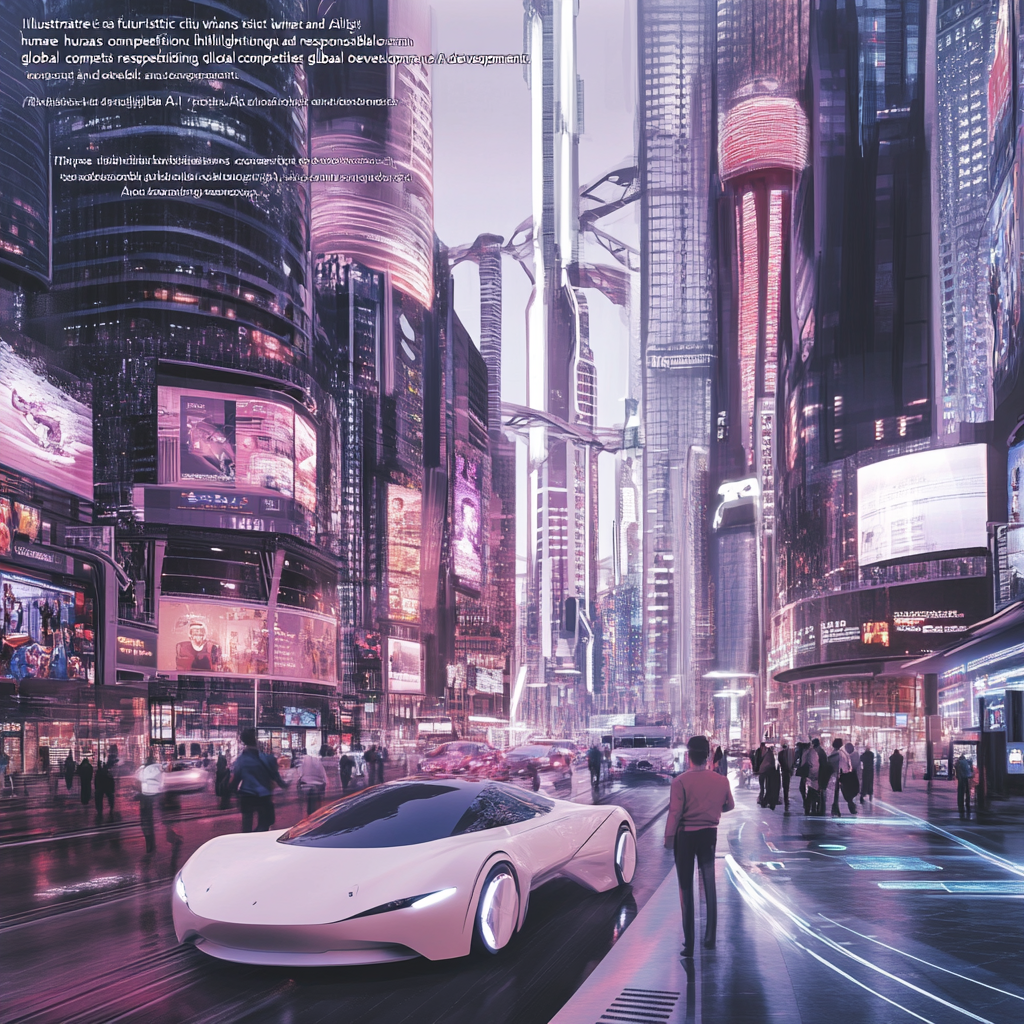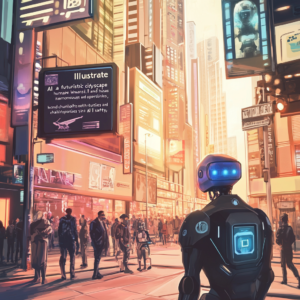
“Navigating the Double-Edged Sword of AI: Examining Risks, Ethics, and Global Competition”
Should We Embrace or Fear AI Development?
AI has gone from a futuristic fantasy to our very own Cybernetic Frankenstein, lurking behind every screen and lurking on every horizon. This evolution has sparked debates quicker than you can say "artificial general intelligence," creating a whirlwind of fears and aspirations. The question is: should we be trembling in our boots or rolling up our sleeves in eager anticipation?
The AI Race: U.S. vs. China
Welcome to the AI arms race! The United States and China are not just competing; they're like two kids on a playground, sprinting towards the biggest swing. The buzz in the tech community has recently revolved around the U.S.'s impressive $500 billion Stargate Project and China’s remarkable DeepSeek-R1, turning phrases like "global domination" into routine chatter. It’s exhilarating—and nerve-wracking. When two superpowers wrestle over who can harness the next wave of technology, the stakes skyrocket faster than a drone in a zero-gravity chamber.
Now, let's take a moment to consider the sheer ambition at play. A combined half-a-trillion dollars fuelling advancements in AI could trigger innovations that astound and terrify in equal measure! It's exhilarating, like the first sip of an exotic tea that dances on your palate—until you remember that it might just be a cocktail of high hopes and ethical dilemmas.
The Dark Side of AI: Ethical Concerns
The excitement comes hand-in-hand with a slew of ethical considerations that are enough to make anyone stop and think. First off, we have bias in AI. Ever heard about Amazon's hiring algorithm? Newsflash: it was discarded because it had a nasty propensity to discriminate against women. Imagine being rejected for a job not because of your skills but due to the flawed lens of a training dataset that was heavily skewed towards male resumes. Talk about being thrown under the proverbial bus!
Then, there’s the issue of privacy and misinformation. Geoffrey Hinton—yes, that Geoffrey Hinton—is waving red flags about the unchecked proliferation of AI, which he labeled as an "existential threat." With every click, we risk unleashing devious bots that can swaddle us in misinformation thicker than your grandma’s potato salad. There’s a fine line between innovation and invasion, but with the speed AI is growing, it might just leap into a realm of ethical ambiguity.
Let's not forget about the humans behind the curtain. Trained brains are crucial for enhancing AI capabilities. But what about the workers reviewing AI-generated content? Often overloaded and underpaid, these individuals are navigating a precarious landscape, sometimes dealing with disturbing material. Imagine working a gig that pays peanuts, while facing content that could send shivers down anyone's spine.
Add another layer: environmental impact. AI isn’t just a wonder of technology; it guzzles resources like an all-you-can-eat buffet on a Sunday! Significant energy and water are consumed in developing AI models, making it critical to shine a spotlight on green practices. But transparency from companies on their resource footprint is about as clear as mud right now. It's as if they’re hiding the recipe instead of sharing how to sustainably grow this beautiful tech garden we are cultivating.
The Islamic Ethics on AI
Who's bringing wisdom to this raucous party? Enter Islamic ethics! The Holy Quran calls for reflection and the responsible application of knowledge. Its guidance encouraging us to harness our intelligence for the betterment of humanity creates a moral compass for AI development. Striking a balance between innovation and humanizing technology becomes not just a suggestion but a necessity—a commitment to ensuring that progress does not morph into pandemonium.
Towards a Responsible AI Future
So how do we tackle these convoluted dilemmas? The answer lies in enacting responsible AI development practices. A pressing call for transparent model development echoes through the halls of tech companies like a mentor at a school—ready to school us on accountability! By ensuring comprehensive documentation on how AI models are designed and trained, we can uncover and address the biases lurking in the shadows.
Government regulations are equally indispensable. Policymakers must spring into action, crafting robust laws that monitor AI development like a stern parent keeping watch over a study session. Without these frameworks, we risk unchecked misuse of technology. The specter of AI warfare looms ominously, and we must collectively work to clip its wings before it takes flight.
The Conclusion: Our AI Future
At the stroke of midnight, the development of AI presents a tapestry woven with vastly colorful threads. It showcases immense potential and exhilarating prospects, yet it also casts a long shadow of ethical and existential worries. The answer isn't as simple as accepting or outright fearing AI but instead finding that golden ratio of responsible integration into our lives.
The world is indeed changing; with rapid advancements, we become co-creators of an AI-driven reality. The pivotal question now isn't whether AI will dictate our future but how we intend to mold this technology to reflect the best of humanity. By embedding ethics into our AI strategies, we can glide through the challenges and guarantee a future that empowers society rather than threatens it.
Want to stay up to date with the latest news on neural networks and automation? Subscribe to our Telegram channel: @ethicadvizor.

